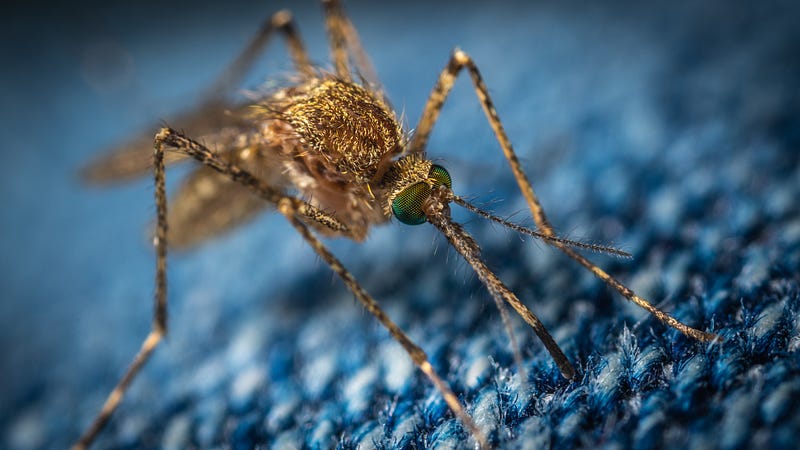Understanding the Itch: Why Mosquito Bites Are So Annoying
Written on
The Science Behind Mosquito Bites
Mosquito bites can be quite bothersome. But have you ever wondered why they itch so intensely?

Mosquitoes don’t bite out of boredom or self-preservation; their primary goal isn’t to quench thirst, as they derive nourishment from nectar rather than blood. The reason they seek blood is that female mosquitoes require proteins and iron to mature their eggs.
The Itch Factor: What Really Happens?
Although we refer to them as "mosquito bites," these insects do not actually bite. Instead, they pierce the outer layer of your skin, known as the epidermis, with a specialized mouthpart called a proboscis, which resembles a straw. This allows them to access fluids easily. Once they penetrate the epidermis, they search for a blood vessel in the deeper layers of skin.
Upon locating a blood vessel, mosquitoes inject saliva containing anticoagulants, which keep the blood flowing while they feed. At this point, your body’s immune system kicks in. Plasma cells dispatch antibodies to the bite site, triggering the release of histamine. This histamine release is what leads to the characteristic redness and swelling, medically referred to as a wheal.
The expansion of blood vessels caused by histamine irritates nearby nerves, resulting in an itchy sensation.
How to Alleviate the Itch
The best strategy is to prevent mosquito bites in the first place. For practical tips, check out this article:
If you do end up with a bite, the most straightforward way to relieve itching is by using an antihistamine, such as Benadryl. These medications are typically available over the counter, and some formulations are topical, allowing for direct application to the irritated area.
It’s important to resist the urge to scratch the bite, as doing so can exacerbate inflammation and worsen the itching.
“Scratching a mosquito bite increases skin inflammation. Since inflammation leads to more itching, this can create a vicious cycle. Additionally, continuous scratching can break the skin, increasing the risk of infection and further itchiness.” — Debra Sullivan, PhD, MSN, CNE, COI
Credit: ThoughtCo.